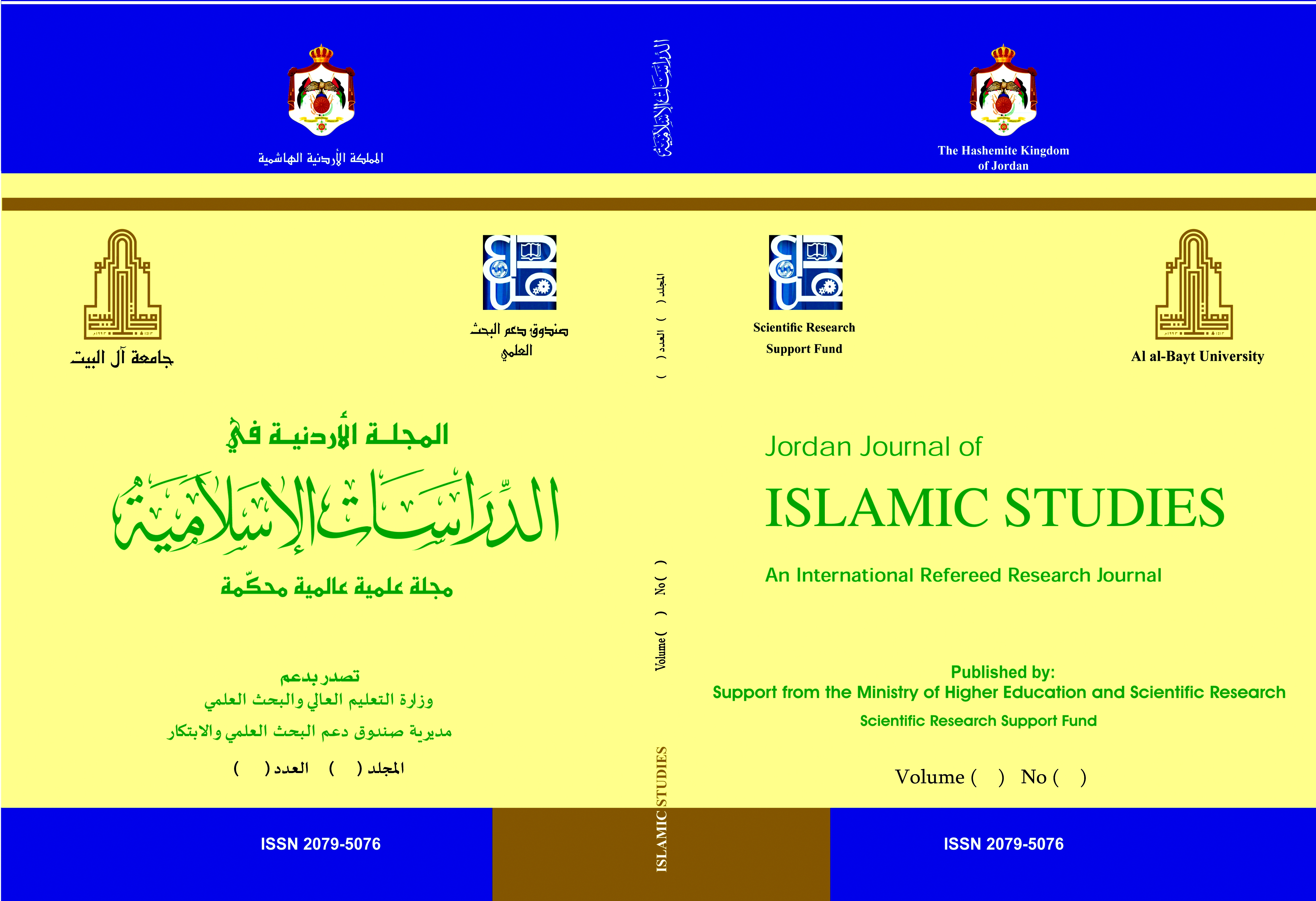Jordan Journal of Islamic Studies

Abstract
This study aims to shed light on the inborn qualities of humans in the Qur’an concerning their enumeration, elucidation of their meaning, and their relation to the duality of good and evil in human nature. It also sought to reveal some rhetorical secrets hidden in the diversity of their linguistic expressions and to study an applied model on the trait of panic. The study employed an introduction and two chapters using the methods of induction, analysis, and deduction. Among the most important results of the study is that the Qur’an mentions a variety of inborn and reprehensible qualities of human beings; it does not indicate the inherent nature of evil in a human being, but rather emphasizes that a human being was created according to a neutral nature which is equal in its inclinations to good or evil. In addition, panic is one of the inborn traits in which a human being lives with; it is most likely that such a trait is common to the human race, both believers and infidels. Muslim believers have the capability to overcome the effects of panic through self-purification by applying the obligations mentioned in the exception mentioned in the Quran, "Except for those who pray."
هدفت هذه الدراسة إلى إلقاء الضوء على صفات الإنسان الجبليّة في القرآن من حيث: إحصائها، وبيان مفهومها وعلاقتها بثنائية الخير والشرّ في الطبيعة البشريّة، واستجلاء بعض الأسرار البلاغيّة الكامنة في تنوّع أساليبها اللغويّة، ودراسة أنموذج تطبيقي على صفة الهلع. وذلك من خلال تمهيد ومبحثين، وباستخدام مناهج: الاستقراء والتحليل والاستنباط. من أهم نتائج الدراسة:
إنّ ذكر القرآن لعدد متنوّع من صفات الإنسان الجبليّة الذميمة؛ لا يدلُّ على تأصُّل طبيعة الشرّ فيه خِلقةً، بل إنَّ الإنســـــان خُلق وفق طبيعةٍ مُحايدة تستوي في ميولها للخير أو للشــرِّ. الهلعُ من الصفات الجبليّة التي فُطرَ عليها الإنسانُ خِلقَةً، والراجح أنَّها عامّة في جنس الإنسان مؤمنهم وكافرهم.
يملك المؤمن مِكنة الاستعلاء على مقتضيات الهلع، وذلك بتزكية نفسه من خلال تطبيق الواجبات المذكورة في حيز الاستثناء بعد قوله تعالى: (إلا المصلين).
Recommended Citation
Zubaidi, Faraj
(2023)
"The Inborn Qualities of Human Beings in the Holy Qur’an: A Pragmatic Objective Study (The Trait of Panic as a Model) صفات الإنسان الجِبليَّة في القرآن الكريم، دراسة موضوعية دلاليّة (صفة الهلع أُنموذجاً),"
Jordan Journal of Islamic Studies: Vol. 19:
Iss.
3, Article 1.
Available at:
https://digitalcommons.aaru.edu.jo/jois/vol19/iss3/1

